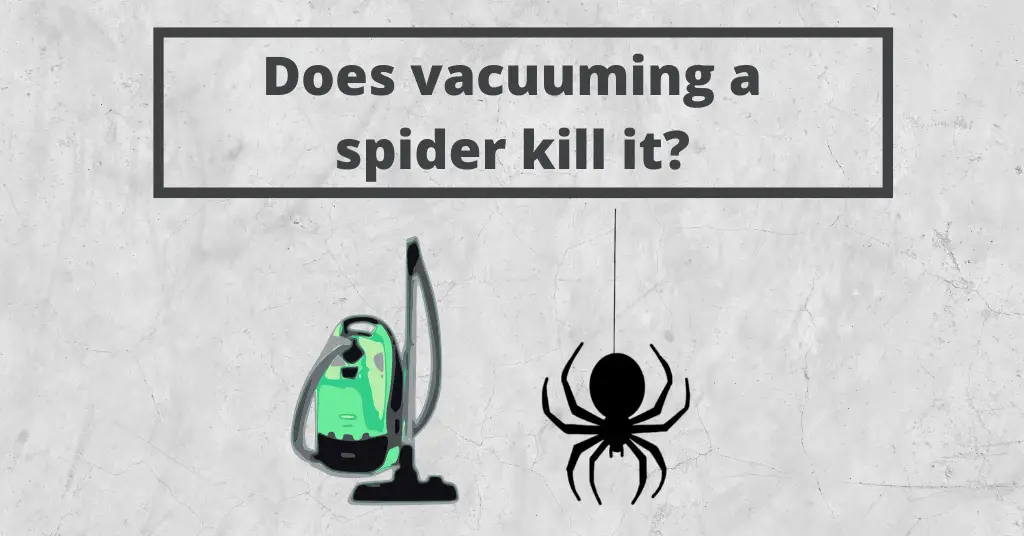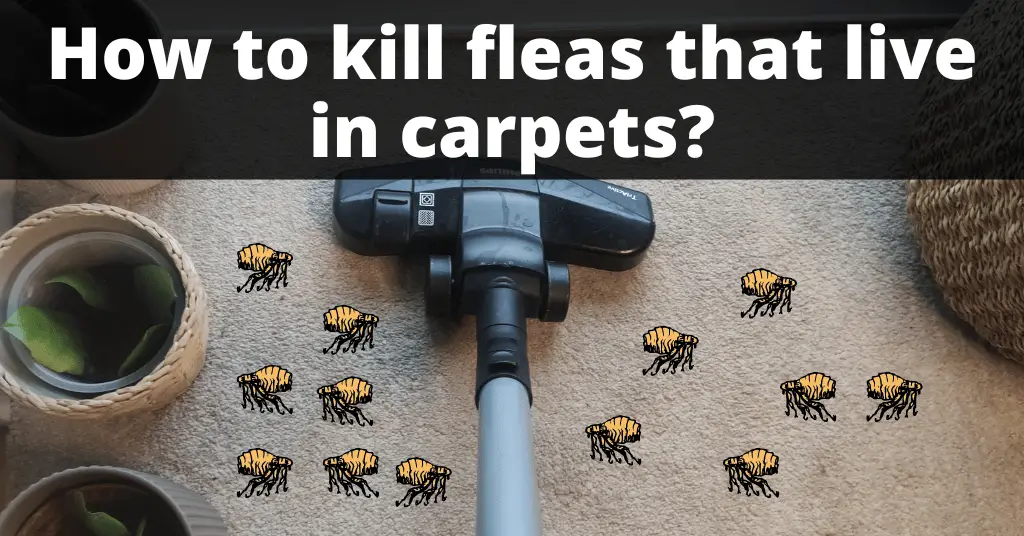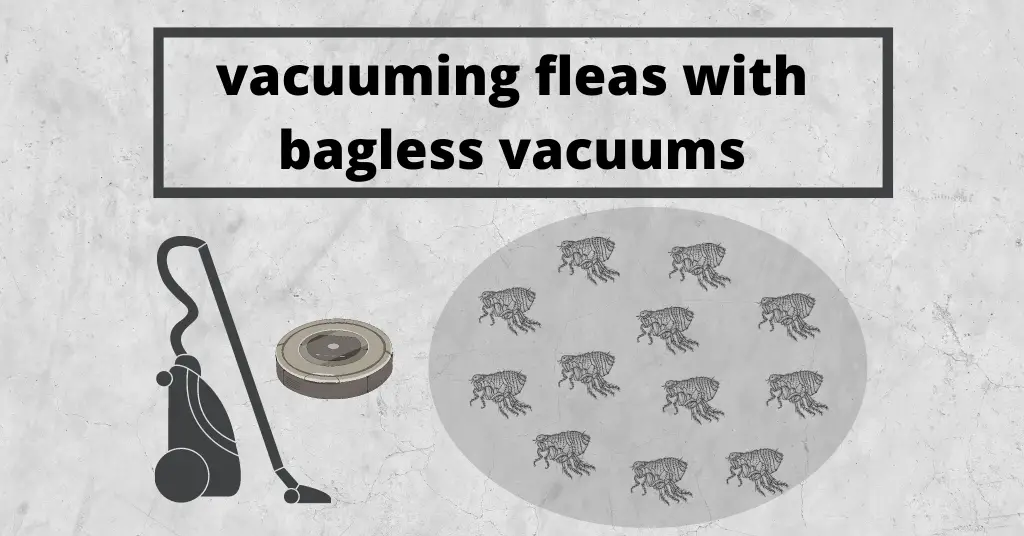Besides the perennial home insects such as fleas, ants, cockroaches, and bed bugs, spiders are a common addition to the list of homeowners’ unwanted house guests. While most spiders are generally harmless, their terrifying presence could not be denied. I bet you don’t want to smash these darned critters with your shoe (much less your hands!) and leave a nasty stain, do you? So, how do you kill them without leaving any shred of filthy evidence?
A vacuum cleaner may be the first thing that comes to your mind as the main weapon to ward off house insects. And that’s in fact what we recommend using against spiders, too!
Yes, vacuuming spiders is most often enough to kill them, but that’s not always guaranteed. There are certain factors that need to be taken into account. In this post, we will dissect what those factors are and how they affect the survival chance of these creepy crawlers.
Can spiders survive being vacuumed?
As we mentioned, vacuuming spiders is effective, but as to whether they can survive after ricocheting through the vacuum hose and down inside the canister will depend on two key elements: how big (or small) the spiders are, as well as the vacuum cleaner type you have at home.
Spider’s size
Spiders as well as other common arthropods have varying body sizes and rigidity of what is called their exoskeleton, or the outer “shell” serving as their protection against external factors. Smaller spiders will usually die right off the bat — their frame is too fragile to survive the vacuum’s strong suction capacity and rapidly rotating bristles.
As for bigger spiders, they may not die from the suction, but chances are they will lose some of their limbs. Besides that – shock endured in the process will surely incapacitate them and if that’s still not daunting enough – the density of dust and filth accumulated in the new environment will also work against them.
Altogether in case they survived initially, they are soon likely to die of suffocation. That’s considering your vacuum bag or container wasn’t brand new and had some content from the previous vacuuming.
Vacuum cleaner type
Just as equally important in the pursuit of killing spiders is the hoover type and the essential attachments that come with it.
Most common consideration is either opting for an eco-friendly bagless vacuum or a regular bagged version.
Bagless vacuum cleaner
Bagless vacuum may eventually end up as a cheaper and more sustainable option as you won’t have to buy replacement vacuum bags. However, the downside of using this type is that it allows a spider to have higher chances of survival inside the container, where it may not suffer the same level of suffocation that a spider will experience in a dark, dusty vacuum bag.
The good thing is, since it does not have a bag to cover it, you can see through the canister, giving you an opportunity to spot the vacuumed arachnid and assess the situation.
Disclaimer: spiders may appear to be dead due to the endured shock and trauma. Don’t fall for their theatrics just yet!
Bagged vacuum cleaner
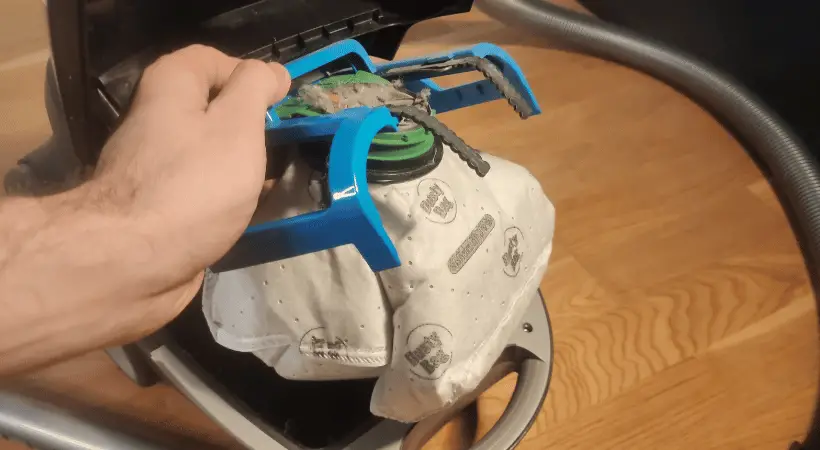
A bagged vacuum cleaner can be considered a better option for this cause. With that you rest assured that the spiders will be trapped in the vacuum bag. After the work is done, you have an option of taking them to their next destination – the garbage can.
Example of an efficient vacuum cleaner
One example of an effective vacuum cleaner against spiders is the Dyson V6 HEPA cordless vacuum cleaner. It is lightweight and not restrictive. The best thing about it is its power and cordless comfort that allows you act quickly whenever and wherever you need to.
The next best thing is its extended reach and flexibility. It can easily transform into a handheld solution with a variety of length options. Either you clean the floor or up the ceiling, it delivers.
When you consider your vacuum type always remember the variety of use cases it may have. So if dealing with spiders, both, power and comfort are equally important.
Spider eggs
What if you found some spider egg sacs with their fearsome mother? Would it be wise to hoover it up as well?
Unless you’re not certain whether you’re dealing with dangerous spiders, vacuuming their egg sacs is efficient and probably one of the best things you could do. Just make sure you do it correctly. Otherwise, you may end up releasing a new generation of spiderlings that can multiply even more in all corners of your humble abode.
How to determine if a spider is dangerous?
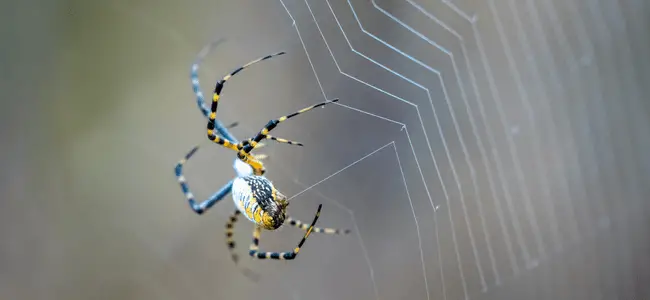
Figuring out what type of spider you have found crawling on the wall, or whether they can be dangerous or completely harmless, can be difficult for most people. One clear fact, though, is that you don’t want any of their species roaming around your house.
So if you’re unsure whether the spider you’re dealing with is dangerous at this point, it is highly recommended that you don’t take matters into your own hands by vacuuming spiders yourself. Instead, immediately seek a pest control specialist who could better do the work on your behalf against the hazardous types.
Can spiders crawl their way out of vacuums?
There is always the possibility that surviving spiders may eventually attempt to crawl out of the hoover. If you left your machine off and unattended for some time, the spider will make its way out through a hole in the canister, the vacuum bag, or through the vacuum hose.
The safest option is to not prolong their prison time inside the vacuum bag, and instead immediately dispose of it and all its contents in a garbage can outside of your house.
Will vacuuming scare the new spiders away?
You may also ask whether vacuuming spiders will scare or discourage them from resurfacing. Well, the straightforward answer is no. Spiders are just as fearless as they are fearsome to us humans.
The truth is, spiders do come back if the very things that attract them to your home in the first place are not taken care of. One of the common ones is food. Spiders feast on other insects that could be found at your home – dead flies, mosquitoes, moths, etc. Therefore, try to maintain your house insect free as much as possible.
Another good prevention method is to reducing clutter. It can make a big difference since with reduced hiding spots spider may decide you to settle in on the ceiling which makes them easy for you to spot. Afterwards, they are at your mercy.
Chemical use
If all else fails, a pesticide permitted for indoor use can help you in dealing with more intimidating spiders, whether you were able to identify them as potentially dangerous or not.
Practice caution, though, as spraying chemicals directly into a spider marching along the wall may not be the best way to do it. Instead it suits better as a preventative measure.
Selecting the relevant pesticide and applying it to crevices and cracks where spiders will normally pass through is a good first step. This way, you are not only allowing spiders to meet a pesticide-enabled death, but also discouraging other spiders from surfacing.
Is killing spiders unethical?
Probably this question might have crossed your mind remembering your mother’s superstitious advice of not killing them.
So, should you really have to vacuum spiders and kill them in the process, just because you don’t want them in your house? Wouldn’t allowing them to survive and letting them crawl in the grass outside be enough and the right thing to do?
Well, the choice is yours. After all, there are plenty of valid arguments against vacuuming spiders and killing them. For example, spiders serve as predators to other insects that are also infesting your home, such as flies, mosquitoes, and moths. Aren’t they doing you a tremendous favour?
This is not to invalidate your potential arachnophobia or fear of spiders. But, experts do advise that instead of killing them, try to have them captured first. You can do that by selecting a lower suction power on your Dyson and release them outdoors (as far from your house as you can).
Again, the ultimate decision whether they should be killed or be allowed to live is up to you. But taking any necessary steps to control spider infestation is perfectly normal and makes absolute sense.
